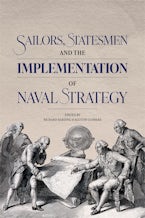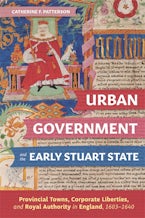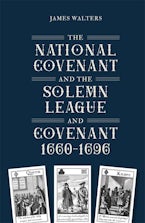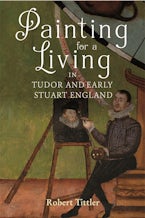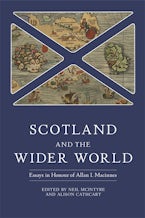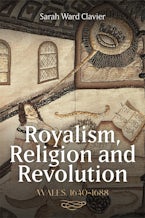
Title Details
285 Pages
23.4 x 15.6 cm
Series: Studies in Early Modern Cultural, Political and Social History
Series Vol. Number:
30
Imprint: Boydell Press
Cromwell's House of Lords
Politics, Parliaments and Constitutional Revolution, 1642-1660
- Description
- Contents
- Reviews
The final years of the Cromwellian Protectorate are usually written off as a brief interlude on the inevitable road to Restoration. This book galvanises this forgotten period of Interregnum studies by providing the first thoroughstudy of the Cromwellian 'Other House' - a new upper parliamentary chamber of nominated life peers created in 1657.
Despite the execution of Charles I and the establishment of a kingless republic, the period of the English Civil Wars and their aftermath is rarely described as one of constitutional revolution. The notion that the 1650s were politically conservative is exemplified by the tendency of historians to fixate upon the offer of kingship to Oliver Cromwell and his increasingly monarchical appearance. This book rethinks the political history of the 1640s and 1650sby focusing instead upon the upper parliamentary chamber. Besides exploring changing attitudes towards the House of Lords during the Civil Wars, and the circumstances that led to its abolition in 1649, it provides the first thorough study of the Cromwellian "Other House" - a new upper parliamentary chamber of nominated life peers created in 1657. Jonathan Fizgibbons demonstrates how the Other House was much more integral to Cromwell's aims for a lasting post-war settlement than the offer of the Crown. More broadly, this book reconceptualises the political and constitutional history of the 1640s and 1650s by looking beyond outward forms of government and visual culture. It argues that radical shifts in political thought were concealed by apparent continuities in forms of government. Even though the new Cromwellian upper chamber had the familiar appearance of a House of Lords, the very meaning of the House of Lords was contested and transformed by the experience of the Civil Wars and their aftermath.
JONATHAN FITZGIBBONS is Lecturer in Early Modern History at the University of Lincoln.
Despite the execution of Charles I and the establishment of a kingless republic, the period of the English Civil Wars and their aftermath is rarely described as one of constitutional revolution. The notion that the 1650s were politically conservative is exemplified by the tendency of historians to fixate upon the offer of kingship to Oliver Cromwell and his increasingly monarchical appearance. This book rethinks the political history of the 1640s and 1650sby focusing instead upon the upper parliamentary chamber. Besides exploring changing attitudes towards the House of Lords during the Civil Wars, and the circumstances that led to its abolition in 1649, it provides the first thorough study of the Cromwellian "Other House" - a new upper parliamentary chamber of nominated life peers created in 1657. Jonathan Fizgibbons demonstrates how the Other House was much more integral to Cromwell's aims for a lasting post-war settlement than the offer of the Crown. More broadly, this book reconceptualises the political and constitutional history of the 1640s and 1650s by looking beyond outward forms of government and visual culture. It argues that radical shifts in political thought were concealed by apparent continuities in forms of government. Even though the new Cromwellian upper chamber had the familiar appearance of a House of Lords, the very meaning of the House of Lords was contested and transformed by the experience of the Civil Wars and their aftermath.
JONATHAN FITZGIBBONS is Lecturer in Early Modern History at the University of Lincoln.
Introduction
Parliamentarian Thought and the Abolition of the House of Lords, 1642-49
Oliver Cromwell, the Other House and the Humble Petition and Advice
The Membership of the Other House
The Other House and the Second Session of the Second Protectorate Parliament
Richard Cromwell, the Third Protectorate Parliament and the Other House Debates
The Other House, the Army and the Search for a Settlement
Conclusion
Appendix: The Membership of the Other House
Bibliography
Parliamentarian Thought and the Abolition of the House of Lords, 1642-49
Oliver Cromwell, the Other House and the Humble Petition and Advice
The Membership of the Other House
The Other House and the Second Session of the Second Protectorate Parliament
Richard Cromwell, the Third Protectorate Parliament and the Other House Debates
The Other House, the Army and the Search for a Settlement
Conclusion
Appendix: The Membership of the Other House
Bibliography
"This book is a lucid work and will certainly become essential reading for historians of the era and of parliaments more generally" THE SEVENTEENTH CENTURY
"Adds considerably to our knowledge of a difficult and controversial period." PARLIAMENTARY HISTORY
"A substantial, fascinating and in many ways persuasive book, and one that ought to be widely read by historians of seventeenth century parliaments and of the English revolution." PARLIAMENTS, ESTATES & REPRESENTATION
"This is a detailed and thoughtful book, and Fitzgibbons is in command of his subject. . . . Fitzgibbons has produced a meticulous and scholarly study that will be of considerable benefit for future scholars." Lloyd Bowen, Journal of British Studies
Hardcover
9781783272471
April 2018
$115.00 / £80.00
Ebook (EPDF)
9781787442337
April 2018
$29.95 / £24.99
Title Details
285 Pages
2.34 x 1.56 cm
Series: Studies in Early Modern Cultural, Political and Social History
Series Vol. Number:
30
Imprint: Boydell Press










